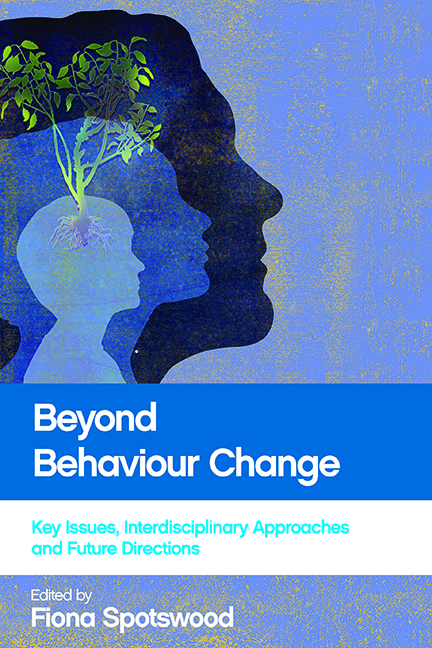one - The politics of behaviour change
Published online by Cambridge University Press: 01 September 2022
Summary
Introduction
This introductory chapter considers the things that have shaped the ways in which behaviour change is discussed and described, starting with the point that this discussion about behaviour change is never very far away from political and ideological beliefs about how people ought to be. Behaviour change is usually about making people different from how they are now. With this in mind, the chapter begins with a consideration of the politics of behaviour change and particularly the way that governments and states, indeed the powerful throughout history, have sought to get people to behave in ways that they, the powerful, want them to behave.
The political imperative
Since the time of recorded history and probably for many millennia before that, violence was the primary means used to bend others to the will of the powerful – behaviour change by force (Pinker, 2011). Hunter-gatherer societies were violent and aggressive. More settled societies were also extremely dangerous until institutions of government began to evolve and what is called state formation began. Societies, rather than being anarchic places where rival warlords vied for power, became states in which one single authority emerged that was strong enough to make other warring factions subservient and around which the institutions of the state could gradually coalesce. The power struggles in Anglo-Saxon England and its conquest by the Normans are good examples of this (Blair, 1956).
As states got stronger, societies became generally less violent (Elias, 1978). In part this was because the state acquired by force a monopoly of violence. It used this force to extract taxes, work and dues of various kinds from its subject people. But with state formation, society gradually became more peaceful and civilised. The state eventually became the monopolist of violence not so much for its own ends, but for the ends of protecting its subjects from each other and allowing trade and commerce to develop. Of course, the state retained the ultimate right to do violence to its subjects and to other states, but, by the early 19th century, state violence in Western Europe against subjects as a means of getting them to do what the state wanted them to do was becoming less and less common.
- Type
- Chapter
- Information
- Beyond Behaviour ChangeKey Issues, Interdisciplinary Approaches and Future Directions, pp. 11 - 26Publisher: Bristol University PressPrint publication year: 2016



